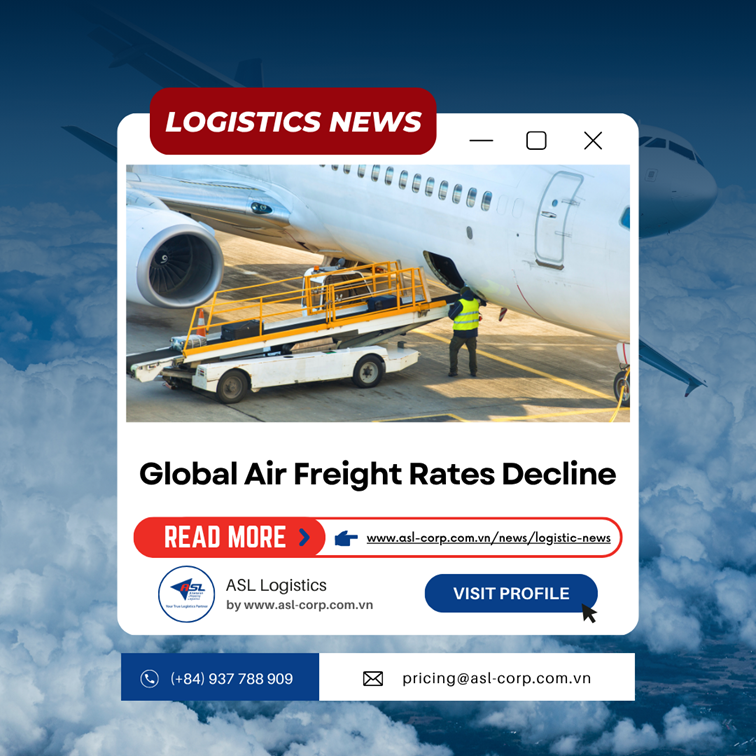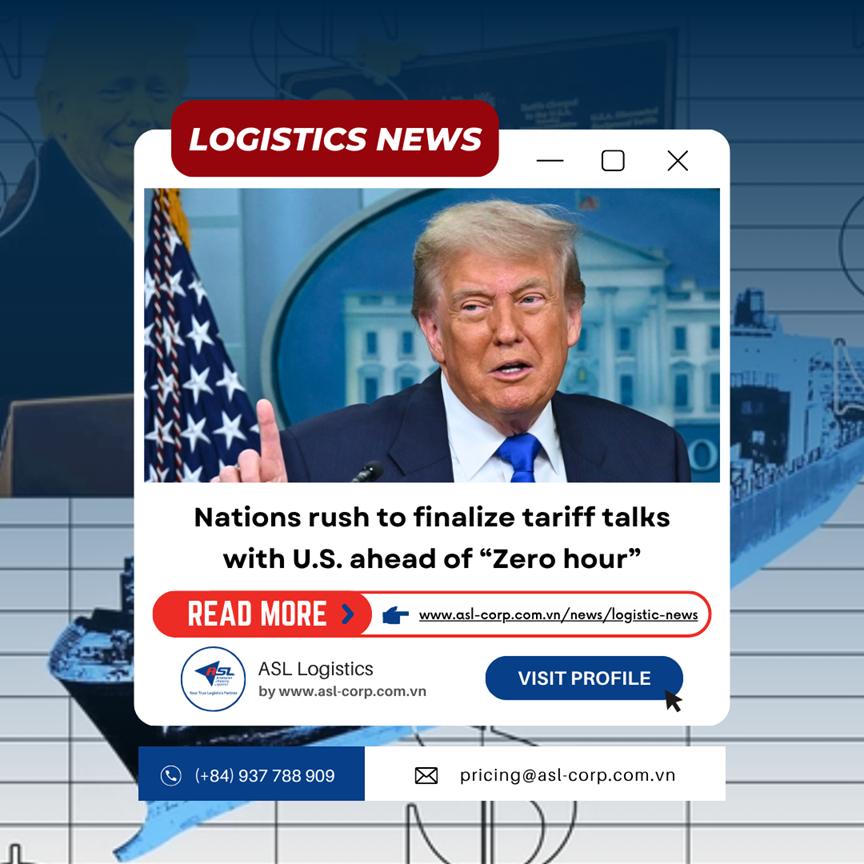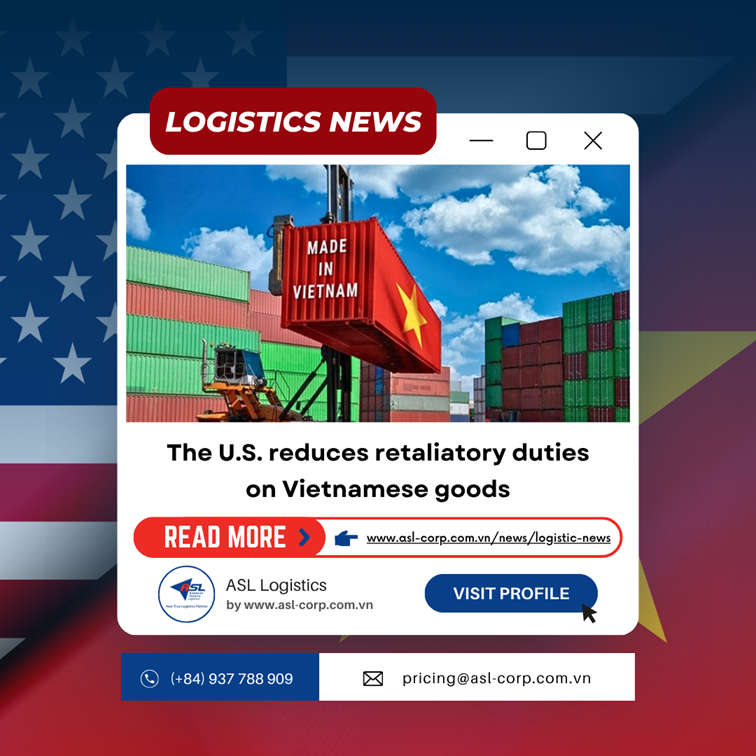Logistic News
THE U.S. EXPLAINS ITS DECISION TO IMPOSE A 245% TARIFF ON CHINA
17 April 2025
According to the White House, the 245% tariff is not actually a new rate and only applies to certain specific Chinese products.
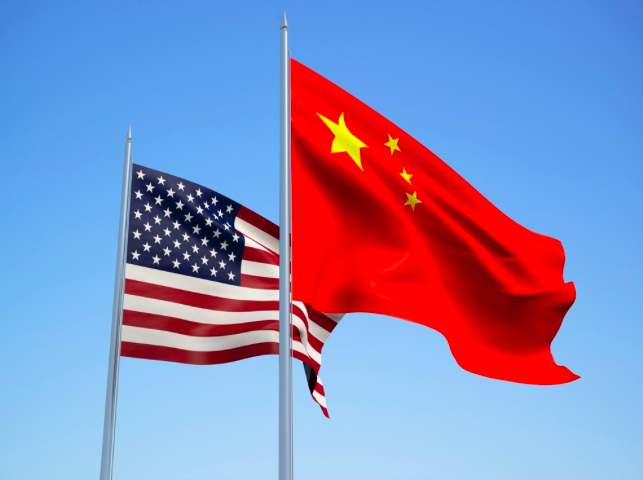
245% is not a new tariff
The global market appeared confused on April 16 after the White House released a statement saying: "China is now facing tariffs of up to 245% on goods exported to the U.S. as a consequence of retaliatory actions."
The 245% figure is significantly higher than the 145% announced by the White House last week, raising questions about whether President Donald Trump's administration had just imposed new tariffs on China.
However, the White House quickly clarified to avoid misunderstandings. The 245% is not a new tariff.
This figure includes a recently announced 125% retaliatory tariff, a 20% tariff related to fentanyl issues, and tariffs ranging from 7.5% to 100% under Section 301 that have been in effect since 2019 on certain Chinese goods.
For example, Chinese-made syringes and needles are subject to a 100% tariff under Section 301. "As a result, these products now face a total tariff of around 245% when the fentanyl-related and retaliatory tariffs are added," the statement explained. Meanwhile, lithium-ion batteries face a 173% tariff, seafood ink 170%, sweaters 169%, and electric vehicles 148%.
The next move is up to China
Earlier, on April 15, the White House stated that it is China—not the United States—that needs to negotiate tariffs.
"It’s now up to China to come to the table. They need to reach an agreement with us — not the other way around,” the White House Press Secretary said on April 15, quoting President Donald Trump.She added, "There’s no difference between China and any other country—except that they’re much bigger."
The statement came after Trump accused China of canceling a major deal with U.S. aerospace giant Boeing.
"They just canceled a big deal with Boeing, saying they will not take delivery of the full number of aircraft they had committed to," Trump wrote on his social media platform, Truth Social.
He did not provide further details about the deal between China and Boeing he was referring to.
According to Bloomberg, Beijing has instructed Chinese airlines to halt further deliveries of Boeing aircraft. The report also noted that China ordered domestic airlines to suspend purchases of equipment and aircraft parts from American companies. China has yet to issue an official response.
Trump argued that China had failed to uphold commitments under a previous trade agreement, seemingly referring to a deal that marked a truce in the U.S.-China tariff war during his first term in office.
He claimed that China purchased only “a portion of what they agreed to buy,” and accused Beijing of “disrespecting” the Biden administration.
Since returning to the White House earlier this year, Trump has taken aggressive tariff action against Chinese goods—initially imposing a 20% blanket tariff, which later rose to 145% following tit-for-tat escalations between Washington and Beijing. In response, China also levied a 125% tariff on U.S. goods.
China Lays Out Terms for Resuming Negotiations
China’s Ministry of Commerce stated it firmly opposes what it calls the “unilateral tariff measures” imposed by the United States. The ministry also emphasized that China has taken firm steps to safeguard national interests and rights.
Beijing has called on Washington to make a significant move by rolling back retaliatory tariffs.
China has also expressed willingness to resume trade talks—if the U.S. meets certain preconditions.
According to Bloomberg, Beijing has outlined four key demands for Washington: a more diplomatic approach, a consistent trade stance, resolution of concerns over sanctions and the Taiwan issue, and the appointment of a chief negotiator with full backing from President Trump.
Chinese Foreign Ministry spokesperson Lin Jian emphasized:
"If the U.S. truly wants a negotiated solution, it should stop using maximum pressure and seek dialogue based on equality, mutual respect, and mutual benefit."
Source: AFP, CNBC

Head Office
ASL Hồ Chí Minh
Số 31/34A Ung Văn Khiêm, Phường Thạnh Mỹ Tây, TP. Hồ Chí Minh, Việt Nam
 Công Ty Cổ Phần Giao Nhận Vận Tải Mỹ Á
Công Ty Cổ Phần Giao Nhận Vận Tải Mỹ Á
 (+84)28 3512 9759
(+84)28 3512 9759
 (+84)28 3512 9758
(+84)28 3512 9758
 pricing@asl-corp.com.vn
pricing@asl-corp.com.vn
 mdirector@asl-corp.com.vn
mdirector@asl-corp.com.vn
 www.asl-corp.com.vn
www.asl-corp.com.vn
LOGISTICS SERVICES






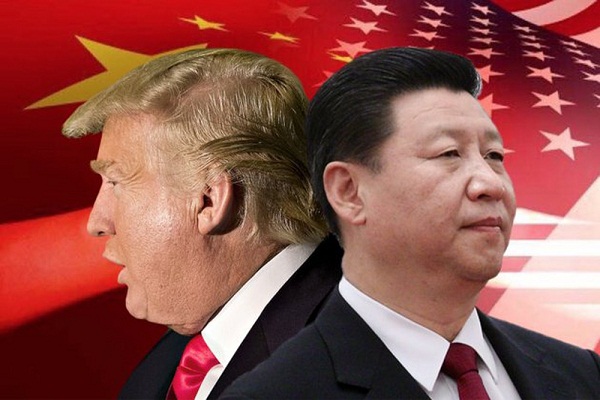




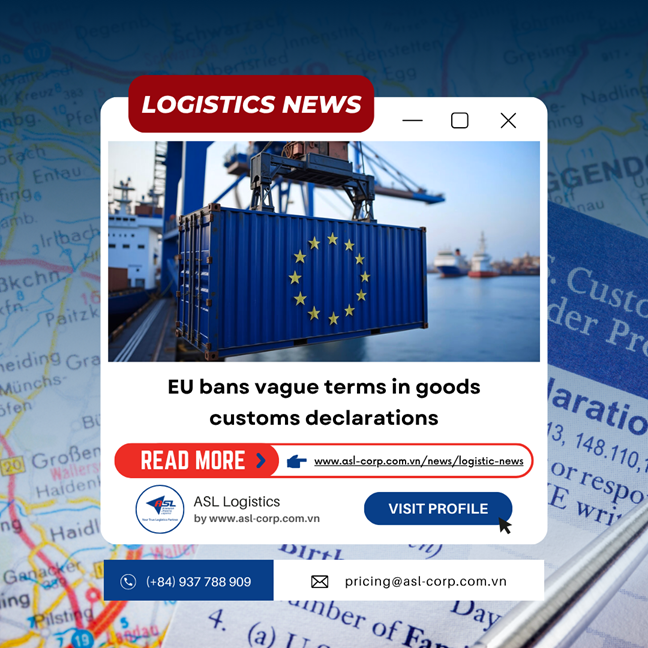
.png)
.png)

.png)

